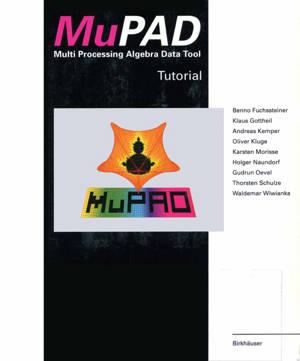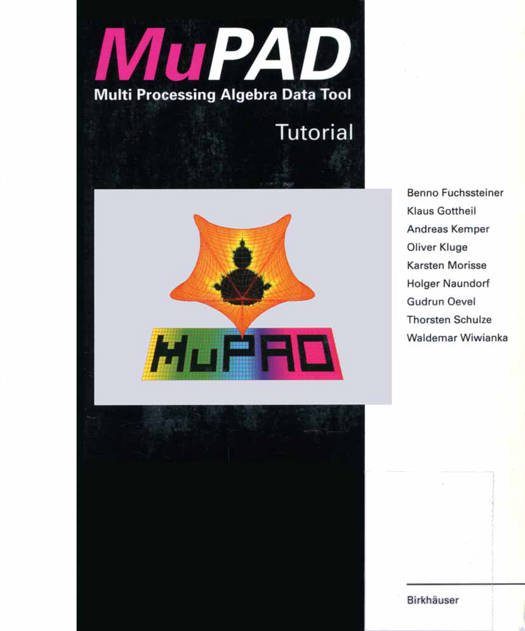
- Afhalen na 1 uur in een winkel met voorraad
- Gratis thuislevering in België vanaf € 30
- Ruim aanbod met 7 miljoen producten
- Afhalen na 1 uur in een winkel met voorraad
- Gratis thuislevering in België vanaf € 30
- Ruim aanbod met 7 miljoen producten
Zoeken
MuPAD
Benno Fuchssteiner, Klaus Gottheil, Andreas Kemper, Oliver Kluge, Karsten Morisse, Holger Naundorf, Gudrun Oevel, Thorsten Schulze, Waldemar Wiwianka
Paperback | Engels
€ 95,04
+ 190 punten
Omschrijving
MuPAD is a computer algebra project of the MathPAD group at the University of Paderborn. MuPAD was designed as a parallel system. The design and implemen tation of MuPAD grew out of the desire to efficiently handle large data generated by algorithms used to investigate the group theoretical structure of nonlinear sys tems. Nevertheless, MuPAD outgrew this original goal and was developed as a general purpose system and should be used as such. MuPAD had two major design goals. As already mentioned, firstly we wanted to prm·ide a tool for fast and efficient handling of large data. This goal was motivated by the special problems which came up in our research on nonlinear systems, where data of several GB are not unusual. As a consequence of this MuPAD is a parallel computer algebra system working on the basis of a shared memor)" machine. Special interfaces, simulating ~hared memory, will be provided for machines with a different architecture. A sequential version of MuPAD is available which, nevertheless, in its high-end language provides parallel constructs for programming. In this sequential version parallEl blocks are executed at random, thus allowing for logical tests of parallel programs on sequential machines. The sequential MuPAD version is the topic of this refErence manual. The second major design goal was to make sure that future versions of MuPAD could be the basis for a system capable of learning during interactive use.
Specificaties
Betrokkenen
- Auteur(s):
- Uitgeverij:
Inhoud
- Aantal bladzijden:
- 199
- Taal:
- Engels
Eigenschappen
- Productcode (EAN):
- 9783764350178
- Verschijningsdatum:
- 1/03/1994
- Uitvoering:
- Paperback
- Afmetingen:
- 170 mm x 244 mm
- Gewicht:
- 392 g

Alleen bij Standaard Boekhandel
+ 190 punten op je klantenkaart van Standaard Boekhandel
Beoordelingen
We publiceren alleen reviews die voldoen aan de voorwaarden voor reviews. Bekijk onze voorwaarden voor reviews.







